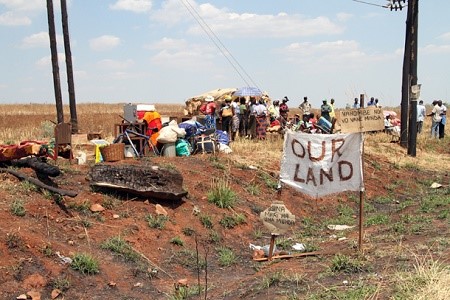A Dutch Response on Zimbabwe Evictions

On 24 May 2019 the Dutch Embassy in Zimbabwe replied to emails sent by supporters of the HIC-HLRN Urgent Action concerning a wave of evictions from land and property across Zimbabwe. Among the cases are those in Chiredzi District, Masvingo Province, involving Dutch investors.
In February 2019 HIC-HLRN joined with Zimbabwe People`s Land Rights Movement (ZPLRM) in an Urgent Action appeal to authorities to stop the forced evictions, pending and already occurring, in several districts in the country. One of these cases occurred on a Dutch-owned property, Angus in Save Valley Conservancy, Chiredzi. The Dutch Ambassador was reported to have threaterned a freeze on Dutch investments in the country as long as the Zimbabwean inhabits remain on the land, thus, pressuring the Zimbabwe government to remove the residents.
The Dutch owners of Angus claim their land under a Bilateral Investment Promotion and Protection (BIPPA) treaty that President Robert Mugabe ratified in 1996. Since then, a group of 40 Dutch farmers won a €25 million ($32.74 million) claim against Zimbabwe in 2009 before the Washington-based International Centre for Settlement of Investment Disputes after their farms were confiscated during the chaotic Zimbabwe land reform of 2000. This time, the forced eviction of Zimbabwean inhabitants with acquired rights to the land may constitute a violation not only of Zimbabwe’s domestic Human Rights Treaty obligations, but also The Netherlands’ extraterritorial obligations (ETOs) under the International Covenant of Economic, Social and Cultural Rights (ICESCR), prohibiting forced evictions by legal or moral persons of Netherlands nationality anywhere. Both Zimbabwe and The Netherlands are treaty partners in ICESCR.
In an effort to ensure that the Government of The Netherlands adhere to their ETOs, HIC-HLRN and ZPLRM encouraged supporters of the Urgent Action to send emails H.E. Barbara van Hellemond, Ambassador of The Netherlands to Zimbabwe, notifying them of the case. On 24 May 2019, the Dutch Embassy in Zimbabwe replied to the Urgent Action with an email:
Thank you for your email in which you express your concern about the possible evictions of residents in Masvingo Province. We acknowledge that the consequences of the Zimbabwean fast-track land reform programme and the policy of the Zimbabwean government regarding resettlement, including the Gazette Land Act Chapter 20:28, are complicated and some of the issues that arise because of the land reform programme are not easily solved.
The Kingdom of the Netherlands attaches high importance to the land reform being implemented in a way fully respective [sic] of human rights. The Netherlands regularly raises the importance of adhering to international human rights obligations in discussions with the Government of Zimbabwe.
Allow me to underline that the Embassy rejects any suggestion that statements made by Ambassador van Hellemond in 2017 and the current developments would be related. After presenting her letters of credence [sic] to then President Mugabe, Ambassador van Hellemond was asked a question on the investment climate. One of the elements Ambassador van Hellemond mentioned in her reply was the respect of property rights and more specifically BIPPA’s. This should be seen in the broader context of respect for the rule of law, including human rights, that the Netherlands promotes, in Zimbabwe, as in the rest of the world.
The Netherlands is a strong defender of all human rights. It is one of the key priorities of our foreign policy.
We are open to look further into the concerns you have raised and if necessary address it to the Zimbabwean authorities.
HIC-HLRN welcomes the response and the affirmation by the Dutch government that human rights are a key priority of its foreign policy, and a clarification of the context in which the ambassador made the comments that were then cited in reports of the evictions in question. That said, it is disappointing that this response does not acknowledge the implications of those comments in the context of eviction. Regardless of the context in which such comments are made, it is imperative that all governments—particularly those that self-identify as strong defenders of human rights—clearly and explicitly highlight that full respect for human rights is of upmost importance in any discussion around cross-border investment.
In the meantime, some farmers who were given land following the re-appropriation of white settler-colonist farms have resorted to hawking as a means of survival, as they have not been given the support needed to produce sufficient crops on their land. The policy of Zimbabwe’s government, announced in February 2019, to confiscate underused land puts such farmers at risk of losing their land.
To further add to the devastating situation of multiple forced evictions, in March 2019 Hurricane Idai ripped through Zimbabwe, Mozambique and Malawi killing 150 people and impacting more than 1.5 million. HIC-HLRN continues to urge solidarity with the affected small-scale farmers throughout the region.
|